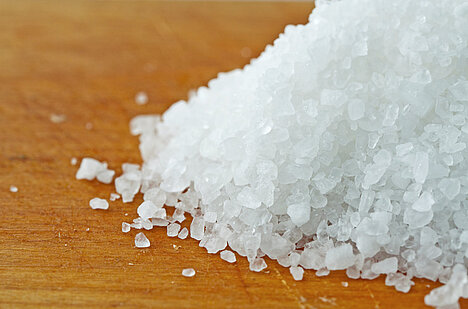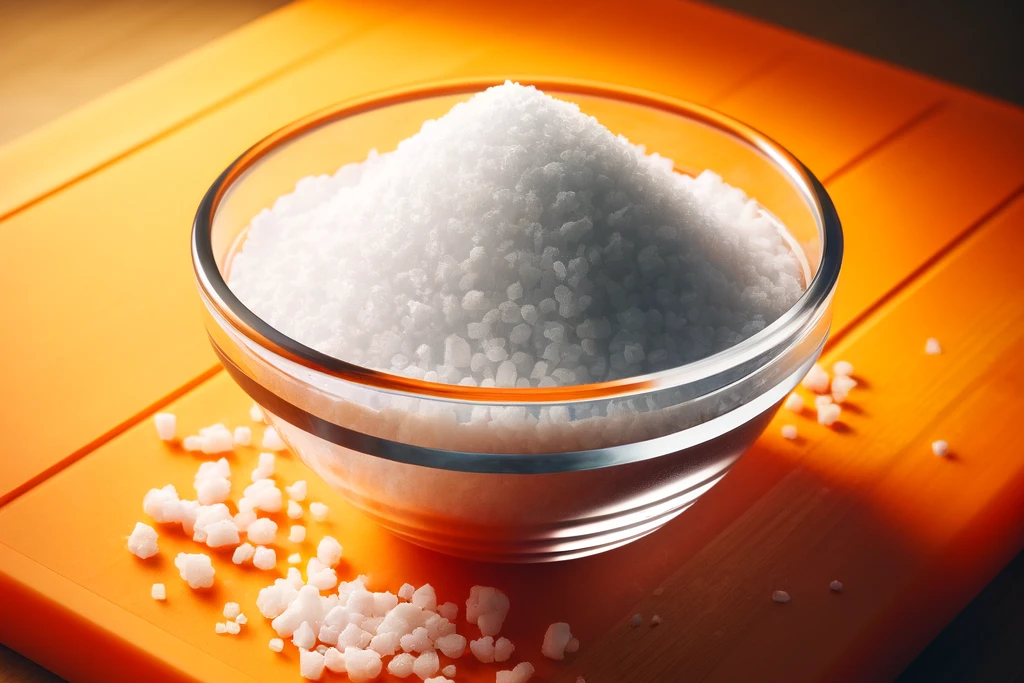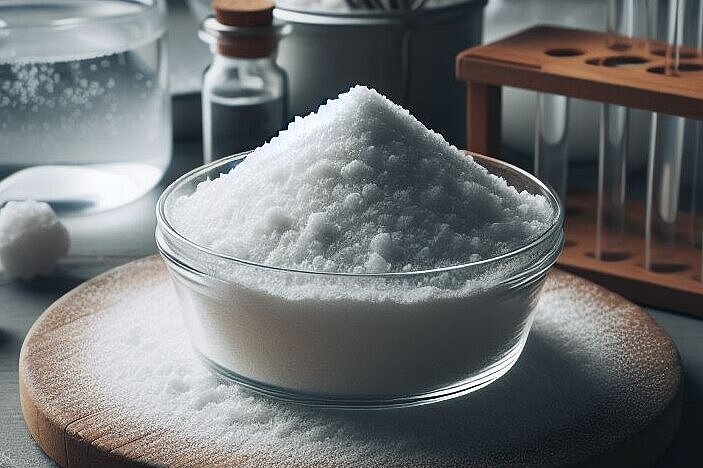Sodium hydrogen carbonate

Sodium bicarbonate, also known as baking soda or Kaiser sodium bicarbonate, is a white powder that has many uses in the kitchen, in the home and in medicine. It is a weak alkali that can neutralize acids. In this article, you will learn what sodium bicarbonate is and how it can be used in dogs.
What is sodium hydrogen carbonate?
Sodium hydrogen carbonate is a chemical compound of sodium, hydrogen, carbon and oxygen. The molecular formula is NaHCO3. It is soluble in water and forms a slightly alkaline solution. Sodium hydrogen carbonate reacts with acids to form carbon dioxide, water and a salt. This principle is used in baking, for example, to make the dough rise.
How does sodium bicarbonate affect dogs?
Sodium bicarbonate can be used both externally and internally in dogs. It has different effects depending on the problem to be treated.
External use
Sodium bicarbonate can help with skin inflammation caused by allergies, bacteria, fungi or parasites. To do this, prepare a solution of 1-2 teaspoons of baking soda in 1 liter of warm water and wash the dog with it. The baking soda has a disinfectant and anti-inflammatory effect and relieves itching. The application can be repeated if necessary.
Sodium bicarbonate can also help with bad breath by reducing the bacteria in the mouth. To do this, a little sodium bicarbonate is dissolved in water and offered to the dog to drink or given into the mouth with a syringe.
Internal use
Sodium bicarbonate can help with gastrointestinal complaints by neutralizing excess stomach acid and thus relieving heartburn, nausea or diarrhoea. To do this, a small amount of baking soda (about 1/4 teaspoon) is dissolved in a little water and given to the dog. It should be given at intervals of 4-5 hours, preferably after feeding.
Sodium bicarbonate can also help with joint problems by inhibiting inflammation and relieving pain. To do this, a higher dose of baking soda (about 1/2 teaspoon) is dissolved in a little water and given to the dog. It should be given once a day.
Sodium bicarbonate can also help with other conditions, such as pancreatitis, epilepsy or rhabdomyolysis. However, a veterinarian should always be consulted to determine the correct dosage and possible side effects.
What are the advantages and disadvantages of sodium bicarbonate in dogs?
Sodium bicarbonate has several advantages as a home remedy for dogs:
- It is inexpensive and readily available
- It is natural and non-toxic
- It has a broad effect against various ailments
- It has few side effects when used correctly
However, sodium bicarbonate also has some disadvantages:
- It can irritate the stomach lining if given too often or in too high a dose
- It can upset the body's acid-base balance if given for too long or in too high a dose
- It can influence the effect of other medications if given at the same time
- It can trigger allergic reactions if the dog is sensitive to it
Sodium bicarbonate is a versatile household remedy that can help with various ailments in dogs. However, it should always be used with caution and in consultation with a vet to avoid possible risks. If you want to give your dog sodium bicarbonate, you should always observe the correct dosage, the correct form of application and the correct frequency.
If you notice any signs of hypersensitivity or poisoning in your dog, you should see your vet immediately. We are not a substitute for a vet, but we try to be as accurate as possible. Every dog reacts differently and we recommend you get a second opinion or consult your vet if in doubt.
Stay healthy and take good care of your four-legged friend!😊
Similar to Sodium hydrogen carbonate
Potassium hydrogen carbonate is a chemical compound consisting of potassium, hydrogen, carbon and oxygen. It is a salt of carbonic acid and has the formula KHCO3. It is easily soluble in water and...
Sodium carbonate, also known as soda ash or washing soda (chemical formula: Na2CO3), is a white, crystalline powder that is highly soluble in water and forms a strongly alkaline solution. It is...
Sodium citrate (trisodium citrate) is the sodium salt of citric acid, an organic acid that occurs naturally in citrus fruits. It is known for its ability to regulate pH and stabilize metal ions in...
Potassium carbonate is a salt that is formed by the reaction of potassium hydroxide with carbon dioxide. It is soluble in water and forms an alkaline solution. Potassium carbonate is an important...



